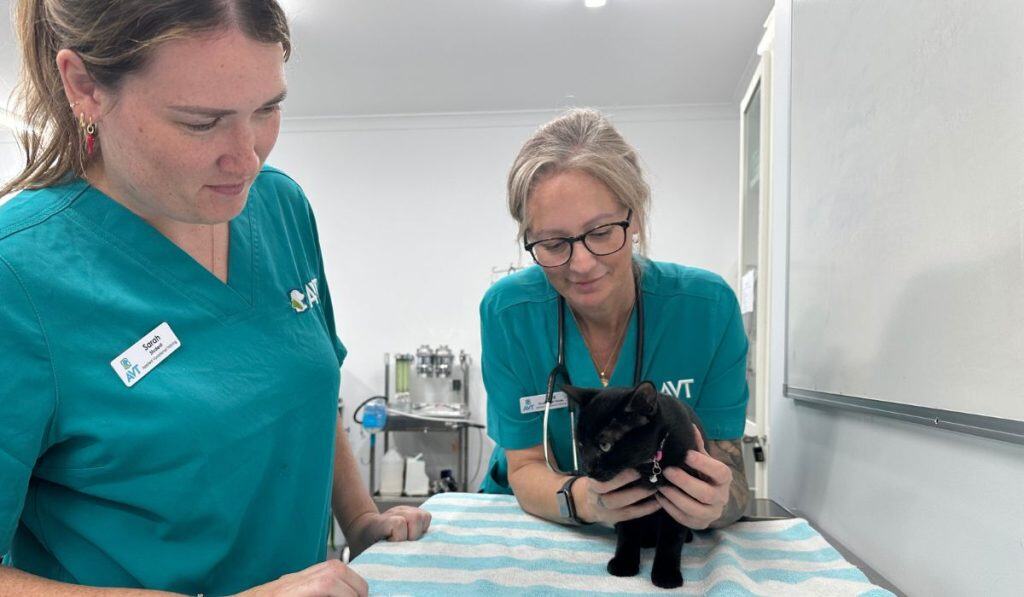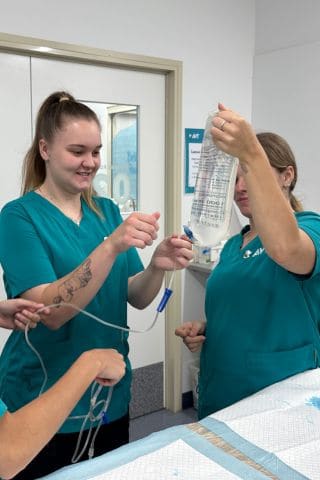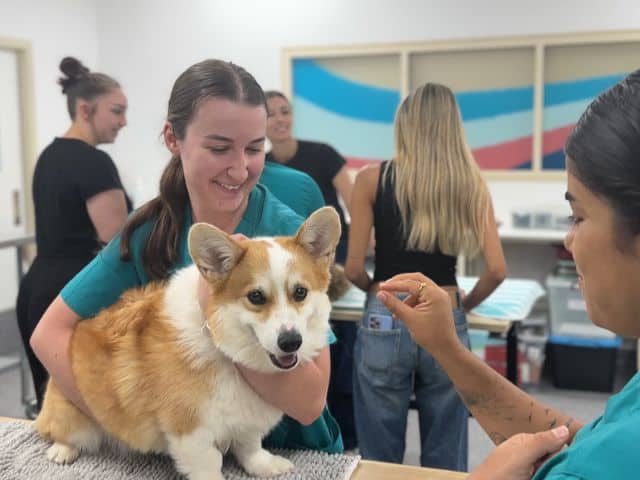Running a veterinary clinic takes more than managing appointments, equipment and patient care, it’s about supporting the people who make it all possible.
Practice managers play a vital role in shaping the wellbeing, morale and culture of their teams. And in an industry known for emotional highs and lows, that leadership has never been more important.
Why team wellbeing should be a priority
The veterinary profession is filled with passionate, dedicated people who go above and beyond for their patients. But without strong support systems, even the most resilient team members can experience burnout, compassion fatigue or disengagement.
High workloads, emotional cases and client expectations can quickly lead to stress, not only affecting individuals, but also team performance, client relationships and patient outcomes.
When practice managers prioritise wellbeing, they build teams that are more cohesive, communicative and capable of delivering consistent, compassionate care.

1. Lead with empathy and open communication
The best workplace cultures start with trust. When your team feels heard and valued, they’re more likely to communicate openly about challenges before they become crises.
Try to:
- Hold regular check-ins with each team member, not just about tasks, but how they’re coping
- Encourage an open-door policy and lead by example by sharing your own strategies for managing stress (Read our tips on How to manage stress in a busy workplace)
- Celebrate wins publicly and approach discussions about challenges sensitively - some individuals may find these conversations beneficial, whilst others may feel uncomfortable sharing personal difficulties
Simple, genuine conversations can go a long way toward reducing stigma and showing your team that mental health matters.
2. Manage workloads and set realistic expectations
Overworked staff are more likely to make mistakes, lose motivation and experience burnout. As a practice manager, balancing rosters, workloads and client demands is key to maintaining both performance and wellbeing.
Consider:
- Recognising the importance of work-life balance to accommodate personal commitments when managing rosters
- Ensuring breaks are scheduled and respected
- Encouraging staff to take annual leave, and modelling that behaviour yourself
- Setting boundaries with clients to prevent after-hours burnout
- Using technology to reduce administrative tasks and improve workflows
- Delegating non-veterinary tasks to support staff and external service providers
- Developing and implementing procedures and checklists to assist team members with managing their days and meeting your expectations
A sustainable workload benefits everyone: your staff, your patients and your business.

3. Create a culture of recognition and support
Acknowledgement can be one of the simplest yet most powerful morale boosters. Recognising effort and teamwork shows your employees that their work, and their wellbeing, is valued.
Ways to build a positive culture include:
- Hosting small team celebrations for milestones or achievements
- Starting meetings with positive feedback or gratitude moments
- Encouraging peer-to-peer recognition through informal shout-outs or appreciation boards
- Encouraging your team to share ideas and work together as a team (Read our tips on How to Work Effectively in a Team in Animal Care)
- Addressing any conflict promptly and professionally (Read our tips on Managing Conflict)
- Creating an inclusive workplace
These activities reinforce connection, belonging and purpose, all essential for resilience in demanding workplaces.
4. Provide access to mental health resources
Even with strong leadership and culture, professional mental health support is sometimes needed. Make sure your team knows what resources are available to them.
This could include:
- Displaying contact information for crisis and counselling services such as Lifeline or the AVA’s Member Assistance Program
- Offering access to Employee Assistance Programs (EAPs)
- Normalising help-seeking behaviour by discussing it openly in meetings or newsletters
Remember, supporting staff wellbeing isn’t about having all the answers; it’s about creating pathways to help.
5. Invest in training that builds emotional intelligence and resilience
Ongoing education is one of the best ways to empower your team. Understanding emotional intelligence, resilience and communication skills helps veterinary professionals navigate the unique pressures of their work.
The Veterinary Workplace Mental Health & Wellbeing Skills Course, offered by AVT, is based on the nationally recognised unit ACMGEN304 Promote positive wellbeing in self and others in animal care workplaces. It’s been designed specifically for the veterinary industry and helps individuals and teams to:

- Recognise signs of stress, burnout and compassion fatigue
- Develop emotional intelligence and positive coping strategies
- Communicate effectively in challenging situations
- Build a more supportive, resilient workplace culture
It’s suitable for practice managers, team leaders and veterinary staff at all levels.

For a stronger, healthier veterinary workplace
When you invest in your team’s wellbeing, you’re investing in the long-term health of your clinic. By creating an environment where staff feel supported, valued and equipped to manage challenges, you’ll build a team that thrives, even in the busiest seasons of care.
Invest in your team with industry-specific wellbeing training, learn more about AVT’s Veterinary Workplace Mental Health & Wellbeing Skills Course.
100% Online Short Course
with AVNAT-Approved CPD Points
Online Mental Health
Veterinary Workplace Mental Health & Wellbeing Skills
Get info








